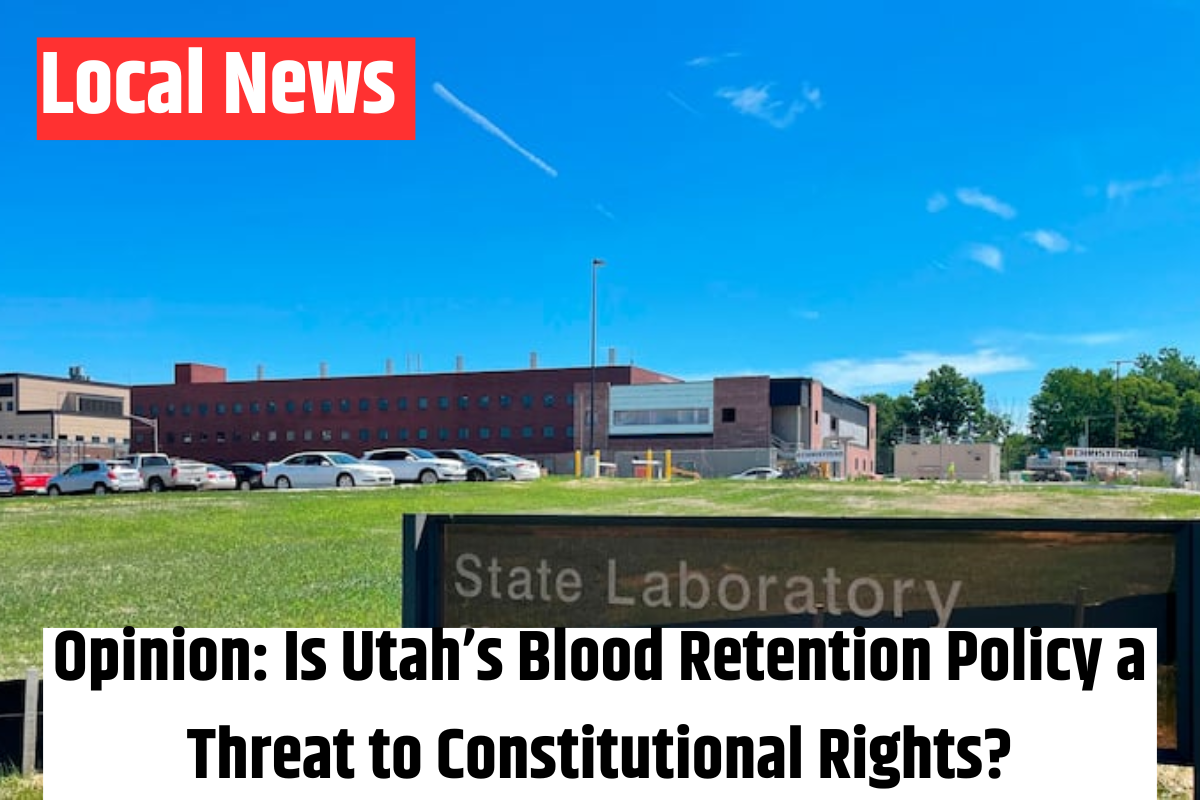
New parents carefully consider who may enter their hospital room after childbirth—doctors, nurses, even friends and family are welcome. But what about police officers, for-profit research firms, or the Pentagon? Under Utah law, these third parties have discreet access to the blood of every newborn in the state.
Within 48 hours after birth, maternity ward staff routinely prick a baby’s heel to collect blood for mandatory screening. This testing, which detects rare conditions such as cystic fibrosis and sickle cell disease, is standard practice across the nation and undoubtedly saves lives.
However, once the blood is collected on paper cards, Utah takes an unexpected turn. Instead of destroying these samples, the state retains them, quietly building a vast database with potentially millions of records—and without parental notification. Under current state law, once the blood reaches the Utah Department of Health, it legally becomes state property. Parents have no choice in the matter; opting out is not an option. Refusal to participate can even lead to charges of medical neglect.
At present, Utah holds onto the physical blood samples for seven years, while data from these cards remains on file for 22 years. The specifics of how this information is used during that extended period remain vague, raising serious concerns about potential misuse.
Other states have faced similar controversies. In Texas, officials were caught handing over DNA data to the Pentagon for a national registry. Michigan and Minnesota were found to be selling newborn blood samples for research purposes—practices that were eventually halted by court rulings. More recently, New Jersey came under fire when infant blood samples were handed to police agencies without a warrant, resulting in criminal charges against at least one father. The Institute for Justice, a public interest law firm, now represents New Jersey parents in a class-action lawsuit to end these practices.
Erica Jedynak, a New Jersey mother, is one of the campaign’s outspoken critics. “There’s something morally wrong about the government tracking my child, as if guilt is being assumed from birth,” she said. “I must protect him from what appears to be a very creepy database.”
The constitutional argument centers on the Fourth Amendment, which guarantees the right to be secure against unreasonable searches and seizures. To keep a government database of blood samples, states must secure either a warrant or informed, voluntary parental consent. In practice, the option of obtaining a warrant is irrelevant—no crime has occurred. This leaves consent as the only viable path, but for consent to be valid it must be given knowingly, voluntarily, and before the state retains the blood sample.
Some states have adopted policies that respect parental rights. Indiana, for example, asks parents whether they consent to retaining their child’s bloodspot for specific research, and if declined, the sample is destroyed. Delaware and South Dakota follow similar procedures. In contrast, Utah and New Jersey have removed the choice entirely, asserting that the government should automatically store every child’s blood in a state-run facility.
While New Jersey technically allows parents to opt out by requesting that their child’s bloodspot be destroyed, Utah has stopped accepting such requests, citing an ongoing legal review. Courts in other states have dismissed the “opt-out” model on the grounds that many parents may not even be aware of the program’s existence, let alone be in a position to make an informed decision.
Utah’s retention program, which strips parents of their rights over their child’s own blood, demands reform. Blood is a personal, biological asset—it belongs to the individual, not to the state.







